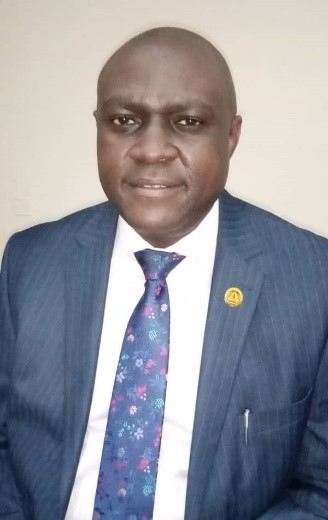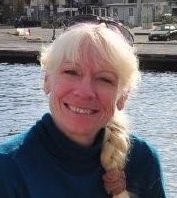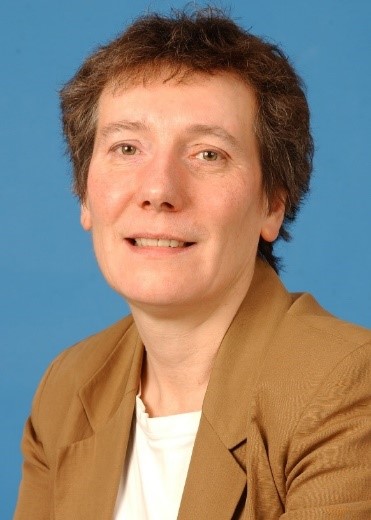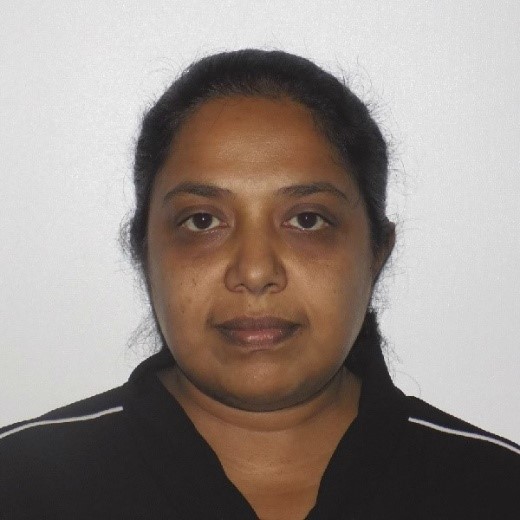Anooshiravan Ansari
Associate Professor, International Institute of Earthquake Engineering and Seismology, Iran.
Anooshiravan Ansari is a faculty member in seismology and risk management in the International Institute of Earthquake Engineering and Seismology, Iran. He was head of the National Centre of Broadband Seismic Network of Iran for six years. His research interest in seismology is earthquake source problem and hazard analysis. He was the manager of different projects to develop software in the field of seismology and earthquake risk management. He has been member of the Iran delegation in Working Group B for more than 10 years.

Anna Berezina
Head of the National Data Centre, Institute of Seismology of the National Academy of Sciences of the Kyrgyz Republic, Kyrgyzstan.
Anna Berezina is the head of the National Data Centre, Institute of Seismology of the National Academy of Sciences of the Kyrgyz Republic, the technical point of contact from Kyrgyzstan to the Provisional Technical Secretariat and the Kyrgyzstani expert at Working Group B. She has more than 30 years of experience in seismic monitoring and seismic data processing and analysis. Since 1998, she has participated in many Comprehensive Nuclear-Test-Ban Treaty-related meetings, including the CTBT: Science and Technology conferences, workshops and training courses. She has been a participant in different international projects, some related to historical data digitizing and preservation and seismic hazard assessment issues. She is the author of a number of publications related to seismic monitoring and historical data digitizing and preservation.

Silvia Blanc
Invited Professor at the Department of Sciences of the Atmosphere and the Oceans, Faculty of Sciences, University of Buenos Aires, Argentina. Former Head of the Underwater Acoustic Propagation Department, Argentinian Navy Research Office and UNIDEF (National Council of Scientific and Technical Research/Ministry of Defence).
Silvia Blanc’s academic training in physics was acquired at the University of Buenos Aires and the International Centre for Theoretical Physics, Trieste, Italy. Her research and development (R&D) work in hydroacoustics has been carried out since 1974 at various national institutions in Argentina, including the University of Buenos Aires, where she currently is a Professor at the Department of Sciences of the Atmosphere and the Oceans. Ms Blanc’s fields of interest include modelling of underwater sound wave propagation, bottom interaction and acoustic scattering by volume elements.
Her teaching activities cover undergraduate, graduate and doctoral courses. Additionally, Ms Blanc is a technological advisor of the Ministry of Science and Technology. She has also been a visiting researcher at various universities, laboratories and institutions in Italy, UK, USA and Austria. From 2004 to 2012, Ms Blanc was the President of the International Association for the Physical Sciences of the Oceans (IAPSO) National Committee and a member of IAPSO Executive Committee from 2007 to 2015. Since July 2023, she is the Secretary General of IAPSO.
Ms Blanc is the author of numerous scientific articles, technical reports, book chapters, as well as scientific communications in international congress, conferences and workshops.

Mohamed Nabil ElGabry
Director, African Disaster Mitigation Research Centre and National Research Institute of Astronomy and Geophysics, Egypt.
Mohamed Nabil ElGabry is a senior expert in seismic monitoring and disaster risk reduction with over two decades of experience. He has been instrumental in establishing and operating seismic networks in Egypt and Sudan with significant involvement in the progressive commissioning of International Data Centres and on-site inspections. Since 2013, he has served as the Egyptian delegate to Working Group B. As the Deputy Director of the National Data Centre at the National Research Institute for Astronomy and Geophysics in Egypt, he has led numerous initiatives to enhance community resilience through advanced geosciences and interdisciplinary collaboration. Additionally, he is the founding member and current director of the African Disaster Mitigation Research Center and the vice president of the African Seismological Commission.

Paola García Peña
Network Manager of the Chilean International Monitoring System station and National Data Centre, Comisión Chilena de Energía Nuclear, Chile.
Ms. Paola García Peña has been working at the Chilean Nuclear Energy Commission since 2014 and oversees all aspects of the Comprehensive Nuclear-Test-Ban Treaty in Chile. She holds a background in management engineering and has completed studies in other fields related to Chile’s public sector. Ms. García Peña serves as station manager for stations HA3, IS13, IS14, RN18 and RN19 under post-certification activity contracts. She also oversees the Chilean National Data Centre. She actively contributes to Working Group B as a Co-Task Leader in Support to Provisional Operations and she is also part of the third cycle of On-Site Inspection inspectors.

Sylvia Generoso
Engineer and Researcher, Commissariat à l’Energie Atomique et aux Energies Alternatives, France.
Sylvia Generoso holds a PhD in atmospheric physics from the Paris-Diderot (Paris 7) University. She joined the French National Data Centre, operated by the Commissariat à l’Energie Atomique et aux Énergies alternatives in 2014. Since then, Ms Generoso is active in both operational and research and development activities for Comprehensive Nuclear-Test-Ban Treaty topics related to atmospheric transport simulation and radionuclide data interpretation.

Daniela Veronica Ghica
Head, National Institute for Earth Physics, Romania.
Daniela Veronica Ghica is the head of the Romanian National Data Centre and the representative of Romania to Working Group B. She obtained her PhD in Physics from Bucharest University, Romania, in 2011. Her area of expertise includes array seismology, test-ban monitoring and infrasound monitoring. Her competences in infrasound signal processing and analysis materialized in the application of automatic and interactive techniques for detection and characterization of the natural/anthropogenic infrasound sources and seismoacoustic events. Her work includes the study of discrimination between explosions and tectonic earthquakes. She is involved in the development of the infrasound monitoring network installed in Romania.

Gustavo Haquin Gerade
Head, Radiation Safety Division, Nuclear Licensing and Safety Office, Israel Atomic Energy Commission, Israel.
Gustavo Haquin Gerade holds a PhD in hydrology in soil physics and an MSc in nuclear engineering. He is head of the Radiation Safety Division of the Nuclear Regulatory Authority of Israel. He has been involved for almost two decades in radiation detection as head of the International Monitoring System radionuclide laboratory RL9 in Israel. He is a member of the Israeli delegation to Working Group B and an expert in the on-site inspection (OSI) verification regime and the draft On-site Inspection Operational Manual. He was a former head of the Policy Planning and Operations Section of the OSI Division. He is an expert in OSI techniques, mainly radionuclide, as well as OSI methodologies. He is a member of the scenario task force team for the development of the scenario for the Integrated Field Exercise in 2025.

Li Peng
Deputy Secretary General, China Arms Control and Disarmament Association. Director and Research Fellow, the Arms Control Research Centre, National Development Strategy Research Institute, Tongji University, China.
Li Peng has been working on nuclear arms control verification since 1997. He has been serving as Deputy Secretary General of the China Arms Control and Disarmament Association (CACDA) since 2019. He has also been serving as Director and Research Fellow of the Arms Control Research Centre, Tongji University since 2024. From 2014 to 2019, he was working for conventional arms control and disarmament. From 2011 to 2013, he was working at the Provisional Technical Secretariat of the Comprehensive Nuclear-Test-Ban Treaty Organization. From 2000 to 2011, he was working in the Chinese Preparatory Secretariat on Comprehensive Nuclear-Test-Ban Treaty (CTBT) affairs and serving as a national expert for Working Group B. From 1997 to 2002, he was engaged in the research of nuclear arms control and disarmament verification, more specifically CTBT-verification.

Anne Strømmen Lycke
Chief Executive Officer of NORSAR, Norway.
Anne Strømmen Lycke has an MSc from the Norwegian University of Science and Technology and is a business graduate from the Norwegian Business School. She has over 30 years of experience in the oil and gas sector and has held high level positions in several large energy companies focusing on renewable energy, carbon capture and storage initiatives. In addition to being Chief Executive Officer of NORSAR, Ms Lycke has a great deal of experience as chairperson and member of various boards such as tech startups, growth companies, renewable energy companies and utilities.

Musa Siphiwe Doctor Manzi
Professor and Director, Wits Seismic Research Centre, University of the Witwatersrand, Johannesburg, South Africa.
Musa Manzi holds a BSc degree (2007), a BSc honors degree (2008), and a PhD degree (2013) in geophysics. Prof. Manzi’s fundamental, innovative, and outstanding contributions to geosciences are concerned with the development of innovative tools and solutions for geophysical exploration to gain a deeper understanding of Earth processes, particularly in exploring natural resources in South Africa and beyond. His work benefits the people of South Africa in various ways: application of Distributed Acoustic Sensing (DAS) and wireless sensing methods to the African cratons and basins facilitates exploration for deep-seated precious and base metal deposits and energy resources, while his curiosity-driven studies of phenomena such as methane gas origin, migration and explosions, earthquakes, and rockbursts assist mining companies and government in developing mitigation strategies.

Oladoyin Odubanjo
Executive Secretary of the Nigerian Academy of Science, Nigeria.
Oladoyin Odubanjo is the Executive Secretary (Chief Executive Officer) of the Nigerian Academy of Science, which he joined about 15 years ago as part of a team to transform the Academy from a largely honorific to a service providing organization. Mr Odubanjo was also the Chairman of the Africa chapter of the International Network for Government Science Advice. He serves on the boards of other organizations such as The Conversation Africa and The Leprosy Mission Nigeria. He has also served on national and international advisory committees especially linking evidence to policy making and implementation.

Marino Protti Quesada
Seismologist Observatorio Vulcanológico y Sismológico de Costa Rica, Universidad Nacional de Costa Rica, Costa Rica.
Marino Protti is responsible for the Costa Rica National Data Centre. He has been working, as a seismologist, for over 40 years, at the Costa Rica Volcanological and Seismological Observatory, from the National University of Costa Rica (OVSICORI-UNA). He obtained his bachelor's degree in geology at the University of Costa Rica in 1983 and a postgraduate degree in seismology in Japan in 1984. He got an MSc in earth sciences at the University of California in Santa Cruz in 1991 and a PhD in geophysics at the same institution, in 1994. In 2018 he obtained a master's degree in international relations and diplomacy at the National University of Costa Rica.
Mr Protti was Director of OVSICORI-UNA, for the periods 1985-1988, 1997-2002 and 2019-2023. In 1996 he was awarded with the Clodomiro Picado Twight National Price in Science and in 2002 the National University awarded him with the Roberto Brenes Mesén Prize for Academic Excellence. He was the President of the Latin American and Caribbean Seismological Commission of the International Association of Seismology and Physics of the Earth Interior from 2014 to 2016. In 2022 he was honoured with the Ambassador Award by the American Geophysical Union and in 2023 he was appointed Knight of the Order of the Star by the President of Italy.

Paul Richards
Professor at Columbia University, USA.
Paul Richards has taught at Columbia University in New York since 1971, where he has conducted research on the theory of seismic wave propagation, the physics of earthquakes and the interior structure of the Earth. He co-authored the advanced text Quantitative Seismology (available in English, Russian, Chinese and Japanese) and is co-discoverer of evidence for super-rotation of the Earth’s inner core. He has been emeritus Professor since 2008 and received the Seismological Society of America’s Reed medal for outstanding contributions to seismology. He participated for the USA in Geneva in the Comprehensive Nuclear-Test-Ban Treaty negotiations in the 1990s and worked with Ola Dahlman in 2006 to initiate what has become the Science and Technology series of conferences sponsored by the Comprehensive Nuclear-Test-Ban Treaty Organization in Vienna.

Anders Ringbom
Research Director, Swedish Defence Research Agency, Sweden.
Anders Ringbom holds a PhD in nuclear physics from Uppsala University. He has been employed at the Swedish Defence Research Agency, the Swedish National Data Centre since 1997 and, as part of his research there, he developed measurement systems and analysis methods for noble gas detection, including the radioxenon system SAUNA used in the International Monitoring System. He is the Swedish representative to Working Group B.

Charlotte Anne Rowe
Seismologist/Geophysicist, Los Alamos National Laboratory, USA.
Charlotte Rowe (PhD 2000) spent the first part of her career focusing on seismic monitoring of erupting volcanoes in Alaska and Antarctica. For the past 22 years she has been a member of the ground based nuclear detonation detection team at Los Alamos National Laboratory where she focuses primarily on precise event relocation, signal analysis methods and tomographic inversion. Additionally, she has worked on gravity field campaigns and subsurface imaging using cosmic ray muon tomography. She is currently engaged in investigations to address challenges in marine seismology and ocean hydroacoustics, particularly in the Arctic where climate change is rapidly altering the soundscape.

Wilfried Strauch
Advisor on Geosciences, Instituto Nicaragüense de Estudios Territoriales, Managua, Nicaragua; Vice Chair Intergovernmental Coordination Group of the Pacific Tsunami Warning and Mitigation System.
Wilfried Strauch is a German geophysicist and seismologist. He serves as an Advisor on Geosciences at the Nicaraguan Geosciences Institute (INETER), specializing in monitoring and early warning systems for natural hazard mitigation.
Early in his career, he focused on software development for detecting, locating, and discriminating nuclear explosions and earthquakes, contributing to the East German participation in the Comprehensive Nuclear-Test-Ban Treaty Organization (CTBTO). He currently oversees the Nicaraguan National Data Center within the CTBTO system at INETER.
Wilfried Strauch has extensive experience in seismic, tsunami, volcano, and landslide monitoring and early warning; disaster assessment; disaster prevention measures; and the application of Geographical Information Systems for disaster mitigation. He coordinates the Nicaraguan Earthquake Early Warning Center and the Central American Tsunami Advisory Center.
Representing Nicaragua in the IOC/UNESCO tsunami efforts, he is currently Vice Chair of the Intergovernmental Coordination Group of the Pacific Tsunami Warning and Mitigation System. He is committed to promoting regional cooperation in Central America, particularly in earthquake and tsunami early warning.

Rika Swastikarani Agnes
Dissemination of Earthquake Early Warning System, Agency for Meteorology Climatology and Geophysics, Indonesia.
Rika Swastikarani has been a civil servant since 2006 and has an educational background in geophysics. During her early career, Ms Swastikarani was assigned to monitor the performance of the Agency for Meteorology Climatology and Geophysics technical implementation units throughout Indonesia. Later, she was entrusted with monitoring the availability of data for all geophysical equipment, especially technical seismological equipment, throughout Indonesia. She is now overseeing the development of an earthquake early warning system in Indonesia and is in charge of the dissemination system. In this role, she collaborates with various national and international counterparts. A significant part of her responsibility is to raise public awareness of the importance of disaster preparedness and strengthening the disaster mitigation system in Indonesia.

Magdalene Wangui Wanyaga
Project Manager, SandRose Ltd, Kenya.
Magdalene Wanyaga is an early career geologist and geophysicist currently working as a project manager in the climate change, sustainable cities and environmental assessments fields, among others. She has been a Youth Group member of the Comprehensive Nuclear-Test-Ban Treaty (CTBT) Organization (CTBTO) since 2016 and is also a member of the CTBT Young Professionals Network . A scientist and strong believer in world peace, she seeks to enhance science communication to drive policy making, especially in Africa and is keen on collaborations that promote scientific programme committee science diplomacy. She also advocates for nuclear non-proliferation and ratification of the CTBT while promoting awareness of the Treaty and the technologies used by the CTBTO, as well as the safe uses of nuclear energy.

Kathy Whaler
Professor of Geophysics, University of Edinburgh, and former President, International Union of Geodesy and Geophysics, United Kingdom.
Kathy Whaler has a BSc in Mathematical-Physics from the University of Sussex, UK. She moved to the University of Cambridge, UK, for a PhD and post-doctoral research in geomagnetism. She was then appointed as a lecturer at the University of Leeds, UK. Since 1994, she has held the Chair of Geophysics at the University of Edinburgh, UK.
Ms Whaler’s research encompasses using magnetic observations from observatories and low orbiting satellites to investigate liquid iron flow in the Earth’s core and the lithospheric magnetic fields of the Earth, Mars and the Moon, the development of geophysical inverse theory algorithms for geomagnetism and electromagnetic induction, and magnetotelluric investigations of the Earth’s electrical resistivity structure, especially in the East African rift. Her honours include external membership of the Hungarian Academy of Sciences, Associate Fellowship of the Ethiopian Academy of Sciences, Fellowship of the American Geophysical Union and the Order of the British Empire.

Dharani Thanuja de Silva Wijesundara
Deputy Director (Mapping and Geo-information), Geological Survey and Mines Bureau, Sri Lanka.
Dharani Thanuja de Silva Wijesundara is a geologist and holds a Master in Geographic Information System and Remote Sensing related to Mineral Exploration. She is engaged in geological mapping, mineral exploration and research related to remote sensing and paleoclimatology. She is currently in charge of the mapping and geo-information sections of the Geological Survey and Mines Bureau, Sri Lanka. She participated in the second training cycle of the on-site inspection (OSI), as well as in events related to OSI including, for example, the Integrated Field Exercise in 2014 held in Jordan in 2014. She represented Sri Lanka to Working Group B in 2024.

Man-Sung Yim
Professor of Nuclear Engineering and Director of Nuclear Security Science and Policy Initiatives, Texas A&M University, USA.
Man-Sung Yim is currently Professor of nuclear engineering and Director of the Nuclear Security Science and Policy Initiative at the Texas A&M University, USA. He is also Professor Emeritus in the Department of Nuclear and Quantum Engineering at the Korea Advanced Institute of Science and Technology where he has taught courses on nuclear risk management, nuclear energy policy, nuclear waste management and radiation biology. He is Associate Editor (Asia) of Nuclear Technology for the American Nuclear Society, a member of the Editorial Advisory Board of Progress in Nuclear Energy and the International Journal of Nuclear Security and an editor for the Journal for Peace and Nuclear Disarmament. Mr Yim’s work aims at safe and responsible use of nuclear technology. He authored a textbook on Nuclear Waste Management: Science, Technology, and Policy. He is a graduate of Seoul National University, Republic of Korea, (Nuclear Engineering, BSc/MSc), University of Cincinnati, USA (Nuclear Engineering, PhD) and Harvard University, USA (Environmental Health Science, SM/ScD).


